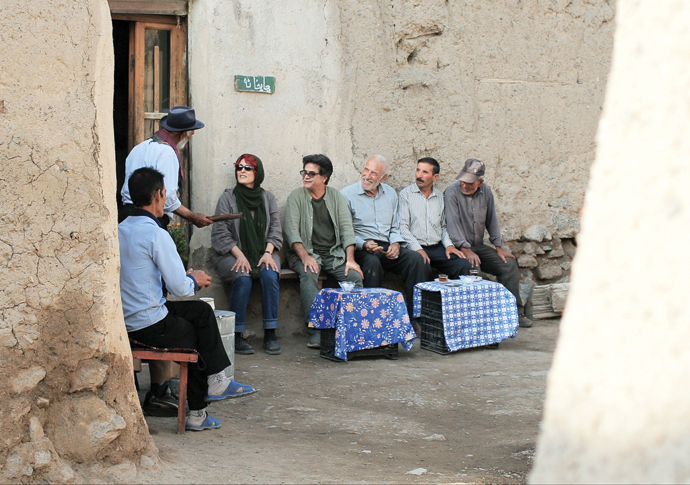
A journey into the heart of Iran – Three Faces
THREE FACES
Directed by Jafar Panahi
Certificate 15
☆☆☆☆
IRANIAN director Jafar Panahi is one of the most intriguing film-makers working today. He is currently under house arrest in Iran and has a long history of conflict with the government and their agencies. He has used his trade to ask questions for many years about life in the country, its aims and means, the oppression, the mores of modern societies where tradition clashes with our globalist understanding of the place of the individual within a collective.
His politics have led him to be censored and stymied, but he has found ways and means round such strictures to continue to produce an on-going body of work that uses this situation as a springboard and inspiration.
I was enthralled by his last film, Taxi Tehran, in which he starred as himself, but played the role of a taxi driver. He used this as a physical and metaphorical journey through a capital city to try and learn more about the state of the nation.
He uses a similar trick here – he again appears as Panahi. Alongside him is actor Behnaz Jafari, playing an actor… He presents them both with a fictional story to contend with.
The story starts with footage shot by a teenager sent to Jafari, asking for her to help. The girl is Marizyeh (Marizyeh Rezaei), and we learn she lives in a remote village and has dreams of going to drama college in Tehran.
Her family have blocked this ambition, despite her gaining a place at the conservatory, and now she says she is going to take her life. The shocking beginning, and the questions the viewers and the leads are asked, sets Jafari off to find the truth. She tells Panahi she must leave the film set she is on and asks him to drive her out into the countryside to find out what has happened to the girl.
What unfolds is an interesting journey into the heart of Iran – a country all too often portrayed in a one-track way in the West.
We are given glimpses of a dramatic hinterland, of villages with age-old customs splashed by modernity. It provides a great backdrop for the story, as do little touches such as a villager providing hospitality with glasses of tea. Such moments fill the viewer with a desire to see this Iran.
By using himself as a lead player, Panahi performs an odd trick – a kind of “switcheroo” gag on the audience – and you almost expect him to turn to the camera and deliver an explanatory soliloquy. It can make it hard to know quite who you are watching, and this is a crucial plank of his intense neo-realism. His performance has a mesmerising quality about it – he possesses a quiet, world wise-liness about him. And that is in a way Panahi’s shtick – he manages, by not doing very much at all, to give the impression of great wisdom, or at least stoicism – perhaps that is something humans gain from this form of captivity.